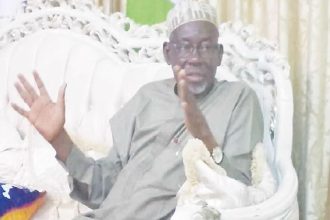The Director General of Al Jazeera Media Network has stressed the importance of protecting journalists working in conflict zones and called for more solidarity between media organisations and human rights groups.
In his first public address since he was appointed director general of the Doha-based network last month, Sheikh Nasser bin Faisal Al Thani said on Wednesday that Al Jazeera has made the protection of journalists a firm priority and the network conducts training and mentorship of its journalists to ensure this.
“The press has never been a party to the conflict, but has been a tool for getting information to the people,” Sheikh Nasser told the Conference on The Protection of Journalists in Armed Conflicts, a two-day event held in Doha, Qatar.
He said it is critical to ramp up measures to safeguard journalists in war zones. “Otherwise, war crimes will remain unwritten” about.
He called for the implementation of human rights regulations and enhanced solidarity among media organisations and human rights organisations.
“Silencing free speech will not stop the truth,” Sheikh Nasser said. “Protecting journalists is protection of the truth itself.”
‘Journalists are being killed’
The first day of the conference comprised several sessions, where speakers included journalists who had reported in conflict zones, such as Al Jazeera’s Gaza bureau chief Wael Dahdouh, who was wounded in an Israeli attack on Gaza in late 2023.
Dahdouh has campaigned to raise awareness of the unsafe conditions for journalists working in Gaza since Israel launched its war on the Palestinian territory on October 7, 2023.
At least 300 journalists and media workers have been killed in Gaza during the two-year war, according to the Shireen Abu Akleh Observatory. This includes 10 journalists from Al Jazeera.
“Journalists are being killed and genocide is being committed against them,” Dahdouh told the conference.
Other speakers included legal experts and workers associated with nonprofit organisations that work for the safety of journalists, such as Reporters Without Borders (RSF) and the Committee to Protect Journalists (CPJ). A spokesperson for the International Criminal Court (ICC) also spoke at one of the sessions.
The discussions focused on attacks against journalists and the imprisonment of journalists in Gaza and around the world.
Several speakers throughout the day highlighted the importance of treating journalists like civilians. Speakers added, however, that international law provisions that lay down safeguards for civilians might not apply similarly to journalists. They pressed on the need for international laws that specifically focus on safeguarding journalists and media organisations.
“The civilian can go away from the combat field but the journalist has to stay. To assimilate the war journalist with the civilian is not right,” Omar Mekky, the regional legal coordinator for the Near and Middle East Region for the International Committee of the Red Cross (ICRC), said.
Speakers also asserted the importance of countries stepping in and putting pressure on the governments that are targeting journalists.
The conference will continue for its second day on Thursday.








